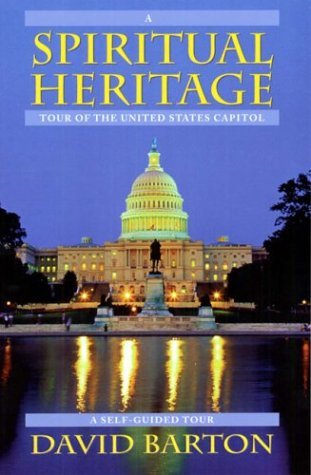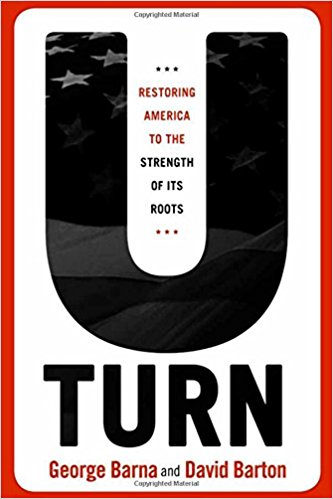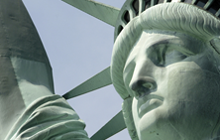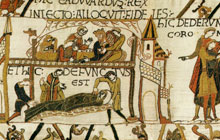The previous sessions have mentioned in passing a common “proof” for America’s Christian nature – the cultural artifacts that are all around us. Those who promote America’s Christian roots point to these artifacts, such as our motto, our currency, and the many religious quotations found on various memorials and government buildings in our nation as evidence for their case. Opponents treat these as incidental, rather than telling, proofs; however, an objective treatment of the subject cannot ignore any relevant evidence, whether or not it is considered trivial. What are we to make of all this? Where does it lead in the answering of our question?
There is not a great deal in print or video detailing either side, but the following video gives an overview of this argument from one perspective at least. In the video, a Christian gives a six-minute tour of Washington D.C. highlighting the various ways Christian symbols and ideas are shown in the nation’s capital.
Apart from walking about our nation’s capital yourself, focusing on just one example here might help clarify the argument made in this session. The Thomas Jefferson Memorial alone shows the influence Christian truth had on Jefferson’s thinking and writing. The following quotations are from that memorial. Decide for yourself.
INSCRIPTION UNDER THE DOME
“…I have sworn upon the altar of god eternal hostility against every form of tyranny over the mind of man.” – Jefferson to Dr. Benjamin Rush, September 23, 1800
PANEL ONE
“We hold these truths to be self-evident: that all men are created equal, that they are endowed by their Creator with certain inalienable rights, among these are life, liberty, and the pursuit of happiness, that to secure these rights governments are instituted among men. We…solemnly publish and declare, that these colonies are and of right ought to be free and independent states…And for the support of this declaration, with a firm reliance on the protection of divine providence, we mutually pledge our lives, our fortunes, and our sacred honor.” – The Declaration of Independence
PANEL TWO
“Almighty God hath created the mind free. All attempts to influence it by temporal punishments or burthens…are a departure from the plan of the Holy Author of our religion…No man shall be compelled to frequent or support any religious worship or ministry or shall otherwise suffer on account of his religious opinions or belief, but all men shall be free to profess and by argument to maintain, their opinions in matters of religion. I know but one code of morality for men whether acting singly or collectively.”
PANEL THREE
“God who gave us life gave us liberty. Can the liberties of a nation be secure when we have removed a conviction that these liberties are the gift of God? Indeed I tremble for my country when I reflect that God is just, that his justice cannot sleep forever. Commerce between master and slave is despotism. Nothing is more certainly written in the book of fate than that these people are to be free. Establish a law for educating the common people. This it is the business of the state and on a general plan.”
PANEL FOUR
“I am not an advocate for frequent changes in laws and constitutions, but laws and institutions must go hand in hand with the progress of the human mind. As that becomes more developed, more enlightened, as new discoveries are made, new truths discovered and manners and opinions change, with the change of circumstances, institutions must advance also to keep pace with the times. We might as well require a man to wear still the coat which fitted him when a boy as civilized society to remain ever under the regimen of their barbarous ancestors.”









